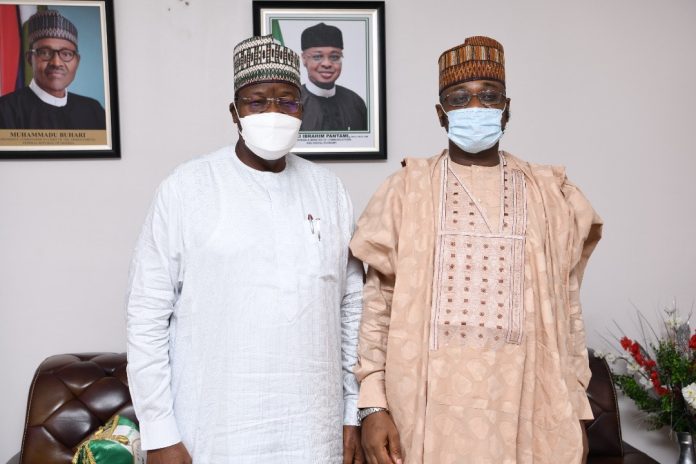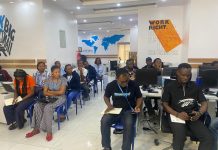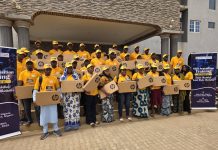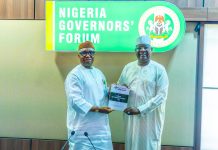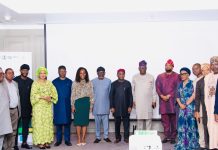Ongoing policy directions and regulatory measures being put in place by the Nigerian Government towards bridging identified broadband infrastructure gaps shall be sustained in order to facilitate increased access to the Internet by citizens across the country.
The Minister of Communications and Digital Economy, Prof. Isa Ali Ibrahim Pantami, and the Executive Vice Chairman of the Nigerian Communications Commission (NCC), Prof. Umar Garba Danbatta, gave the assurance in their presentations during the recently-concluded virtual African Internet Governance Forum 2021 (vAFIGF2021).
The three-day annual forum which held in-person and virtually, was organised with the theme: “Advancing Digital Transformation in Africa in the Face of Crisis”, and hosted by the Nigerian government. The forum was attended by many stakeholders within the African Information and Communication Technology (ICT) ecosystem.
Pantami, who was represented at the forum by a Director at NCC, who doubles as Adviser to the Honourable Minister on Technical Matters, Prof. Sahalu Balarabe Junaidu, said the objective of the forum was to harness digital technology and innovation, transform societies and economies, and eradicate poverty for social and economic development in the Continent.
The Minister said, with the challenges thrown up by the outbreak of COVID-19 pandemic, the demand for Internet services has increased dramatically. He called on African citizens to access the broadband/internet services to carry out their personal and official task more effectively and effectively.
“The COVID-19 pandemic has accelerated the increased need to embrace the digital culture. So, as Africans, one of the ways by which we can respond to the challenge thrown by the pandemic is to accelerate our digital transformation,” he said.
Pantami explained that the digital transformation strategy for Africa should be established on key foundational pillars which include an enabling environment, policy regulation, digital infrastructure, digital skills and human capacity, as well as digital innovation, and entrepreneurship.
He said critical sectors such as digital trade and financial services, digital government, digital education, digital health, and digital agriculture, are also underlining pillars of the transformation. Additionally, he said the drivers of digital transformation include digital content and applications, digital identification, emerging technology, cyber security, privacy and personal data protection, as well as research and development.
Pantami recalled that Internet usage in sub-Saharan Africa is still not encouraging, according to report by the International Finance Corporation ( IFC ) and World Bank. However, the Minister asserted that Nigeria, with its current over 140 million Internet users, has one of the largest subscriptions in the sub-region.
The Minister said the various policies, including the National Digital Economy Policy and Strategy (2020-2030), and the Nigerian National Broadband Plan (NNBP) 2020-2025, emplaced to address infrastructure challenges and enhance the country’s migration to a more robust digital economy, will also ensure that more citizens are able to have access to the Internet in the coming years.
He mentioned the recent successful auction of 3.5 gigahertz (GHz) spectrum band for the scheduled deployment of Fifth Generation (5G) networks as another important policy and strategic step taken by the Nigerian government to boost broadband penetration in the country.
Pantami also listed the enforcement and implementation of the National Cyber Security Policy and Strategy 2021, and the review of the Cybercrimes Act of 2015 to build an inclusive Internet governance ecosystem and boost digital cooperation, as well as the ongoing linking of citizens National identification Number (NINs) with the Subscriber Identification Module (SIM) as worthy state actions that will yield great benefits. Other initiatives cited by the Minister include the ongoing effort to address high Right of Way (RoW) charges, tackling multiple taxation in the ecosystem, and increasing stakeholder collaboration.
Meanwhile, the Director, New Media and Information Security, NCC, Dr. Al-Hassan Haru, who represented Danbatta at the forum, reiterated the Commission’s commitment to ensuring broadband penetration through stimulating continuous roll-out of broadband infrastructure. He said the Commission is well positioned to drive government policy direction to tackle digital infrastructure deficit in the telecoms sector, as well as to explore necessary options to improve the nation’s digital ecosystem.
“The future is digital, and we should be committed to supporting and collaborating with African countries to maximise opportunities inherent in digital technologies. We should also be ready to avoid the pitfalls by instituting appropriate regulations as we are doing in NCC,” he added.
Other stakeholders at the event included eminent policy experts, leading technology managers from the private sector, representatives of governmental organisations, civil society organisations, non-governmental organisations, the academia, and Internet end-users, who actively participated in the discourses during the three-day forum.



